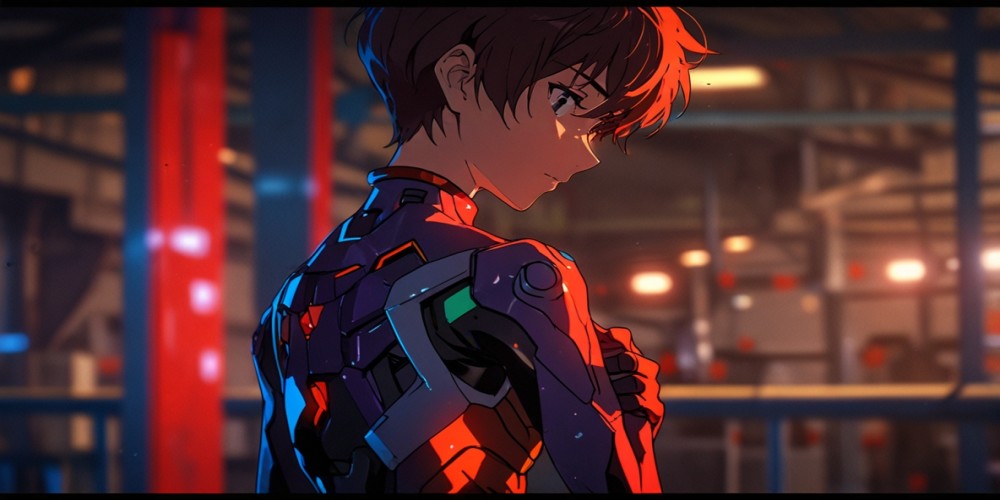The Dark Reflection of Humanity: Analyzing the Hospital Scene in "End of Evangelion"
04 Nov, 2024

In the realm of anime, few series evoke as much discourse and introspection as the iconic Evangelion franchise. At its core, the show unfolds a tapestry of human emotions, conflicts, and situations that challenge viewers on every level. The intricate characters and their moral ambiguities invite audiences to ponder the nuances of good and evil, often blurring the lines between the two. However, among its myriad of powerful scenes, one moment stands out starkly—the infamous hospital sequence from "End of Evangelion." This particular segment has ignited a firestorm of debate and discontent among fans and critics alike, raising questions not only about character intentions but also about the deeper implications of their actions. In this exploration, we delve into the key aspects surrounding this controversial scene, offering insights into its impact on viewers, characters, and the narrative as a whole.
The Unmistakable Impact of Evangelion
Evangelion isn't just a show; it stands as a pivotal moment in anime history, forever altering how narratives are woven in this medium. The storytelling is layered, inviting scrutiny with every evidence of emotional depth, reflecting the turmoil of its characters.
Shinji's Turbulent Journey
Central to the narrative is Shinji Ikari, a protagonist whose unresolved conflicts and fraught relationships drive the story forward. His journey encapsulates the essence of despair, abandonment, and yearning for connection.
Defining the Hospital Scene
Among the many harrowing moments throughout "End of Evangelion," none has sparked the same level of outrage and discourse as the hospital scene where Shinji encounters Asuka. This scene presents a raw depiction of human failure and desperation in the face of overwhelming emotional distress.
Seeking Connection
In a moment of vulnerability, Shinji seeks solace from Asuka, who lies in a comatose state. This depicts his desperate attempt to connect with another human being, highlighting his profound loneliness.
The Nature of Shinji's Actions
However, the actions he takes next plunge the narrative into darkness. In a tumultuous mix of confusion and selfishness, he exposes Asuka's vulnerability while grappling with his own anguish. This act is crucial in understanding the depths to which his despair has dragged him.
The Notion of Regret
Shinji’s reaction reveals an intense inner conflict; immediately after realizing the gravity of his actions, he is overtaken by regret. This moment asks the audience to contemplate the essence of morality, complicating the notion of right and wrong.
Character Motivations
To fully appreciate this moment, it is essential to explore Shinji's character development leading up to the hospital scene. Having just lost a key figure in his life, his spiraling emotional state sets the stage for this tragic turn of events.
The Depths of Despair
Shinji’s predicament heightens the tragedy of the moment; he is consumed by his own sense of worthlessness. This character flaw underscores the emotional turmoil that influences his actions, albeit in a disturbing manner.
The Crossroad of Empathy
While some viewers may wrestle with empathy for Shinji, it is vital to differentiate understanding his motivations from condoning his actions. This fine line remains a catalyst for conversations among the fan base.
Viewer Reactions and Interpretations
The hospital scene isn't only about the characters involved; it deeply affects the audience. Initial shock transforms into introspection, prompting viewers to explore the complex web of human emotions represented in the scene.
A Study in Selfishness
Ultimately, Shinji’s actions symbolize a moment of profound selfishness. The scene forces viewers to face the uncomfortable truth about human nature—at times, individuals act in ways that are irredeemable, driven by their psychological state.
Significance in the Greater Narrative
The implications of these actions resonate throughout the series, allowing for a deeper understanding of Shinji's psyche and the existential themes that permeate Evangelion. It reveals how individuals can falter when confronted with their inner demons.
Artistic Intent and Viewer Interpretation
Hideaki Anno, the creator, has woven a narrative that intentionally provokes. It is clear that his artistic decisions aim to frame Shinji not as a figure worthy of empathy but one deserving of scrutiny. The scene serves as a culmination of Shinji's struggles, encapsulating the series' exploration of personal anguish.
The Community Divide
The divide created within the fan community speaks volumes about the scene's power to inspire both critique and defense. Some argue that the portrayal of Shinji's actions serves a critical function, while others vehemently oppose any justification.
The Legacy of Evangelion
Despite the controversy, "End of Evangelion" and its iconic scenes continue to capture the imagination of fans and critics alike. The hospital scene, laden with emotional weight, stands as a testament to the series’ unflinching approach to difficult subject matter.
The Eternal Conversation
As the discussions around this scene evolve, so too does the understanding of human behavior reflected in anime. With every iteration of analysis, a new layer of meaning emerges, prompting the ongoing exploration of the complex, multifaceted realm of human experience.
Conclusion
In conclusion, the hospital scene from "End of Evangelion" is not merely a moment of distress but an invitation to engage with the darker elements of human character. By examining it through the perspective of Shinji's traumatic narrative, the series challenges viewers to face challenging realities regarding themselves and those around them. As the anime landscape continues to change, scenes like this will remain landmark moments, urging reflection and discussion well into the future.







